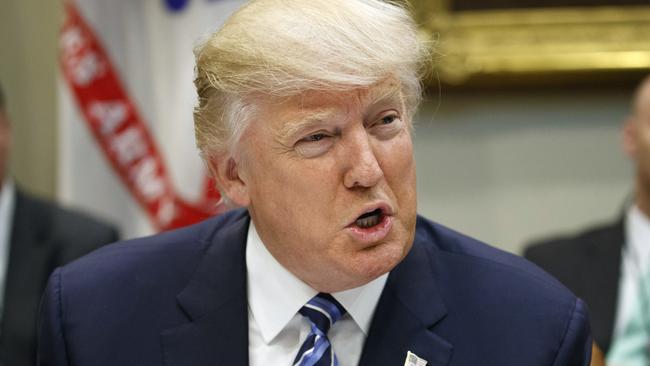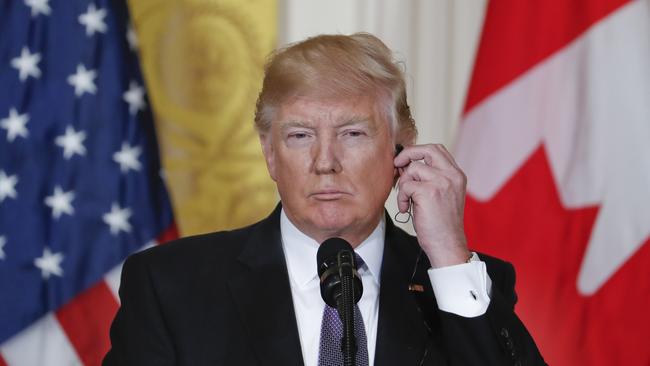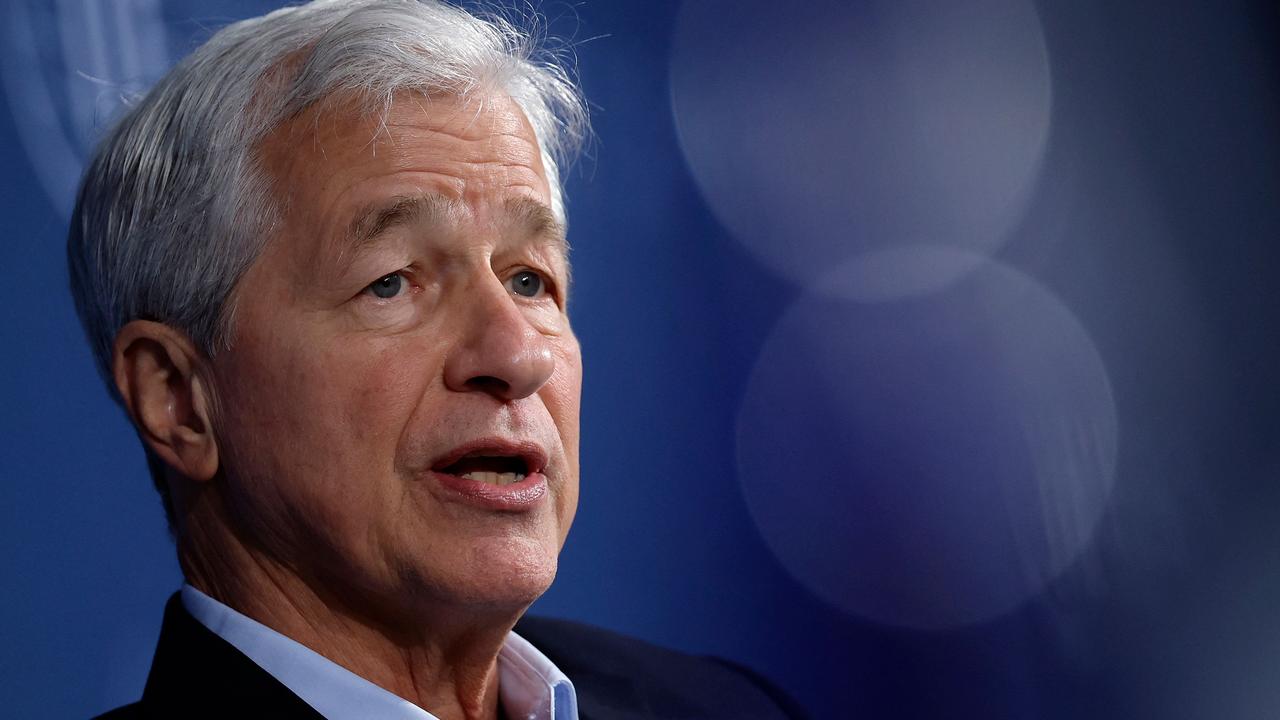Moment of truth: How Trump could exploit a terror attack
FORGET all the drama we’ve seen so far. The real moment of truth is coming, when we’ll learn Donald Trump’s true intentions.

ANALYSIS
WITH Trump’s travel ban now in a state of limbo, concern has shifted from what Donald Trump is doing, to what he’ll do next.
Traditionally, presidents of the United States have been able to consolidate domestic power in two ways: After a terrorist attack at home, or during a war against a foreign enemy. After September 2001, George W Bush brought in the Patriot Act, which led to a massive domestic wire-tapping program.
Then, during the subsequent war with Afghanistan, his administration reintroduced torture, assassination and indefinite detention without trial as tools of American foreign policy.
Even so, the administration submitted to the rule of law at all times. When a point of policy was challenged in court, the administration took the court seriously and adhered to its decision.
But Mr Trump is showing us he is different.
He has railed against anyone he perceives is standing in his way since he came to power: the media, the court system, the intelligence community.
He has created such a crisis around the “blocks” he sees on his power, that unless he acts to “enable” himself, he’ll look like a powerless fool. His own words have made some form of Enabling Act inevitable. And all signs are his Enabling Act will be far more autocratic than anything we’ve ever witnessed in American history.

WHAT AUTOCRACY LOOKS LIKE
A number of years ago, I spent a few days in North Korea, being taken from one national monument to another, under the ever watchful eye of not one, but two minders, who accompanied me everywhere I went, 24 hours a day.
I was only ever alone in my hotel room, but even then, I wasn’t fully alone. Back then, in every room in North Korea there hung a portrait photo of Kim il-Sung and Kim Jong-il. It was literally impossible to escape the presence of the ruler and his dead dad.
One of the main differences between living in an autocracy such as North Korea and living in a free society such as Australia or America is that in an autocracy everyone is constantly aware of the leader in charge. Even when the leader is not physically present, he is present in everyone’s mind, and people understand that they must keep track of his whim, lest the leader does something erratic that turns everyone’s lives upside down.
In a free society, on the other hand, we are governed by the rule of law, which means that the leader in charge can’t just arbitrarily decide new rules.
One of the more autocratic aspects of Mr Trump’s presidency so far, is his constant presence in everyone’s lives. His image may not be hanging on the wall, but he’s dominating the news cycles and proving a significant factor even in domestic Australian politics. It’s hard to look away.
The threat from radical Islamic terrorism is very real, just look at what is happening in Europe and the Middle-East. Courts must act fast!
— Donald J. Trump (@realDonaldTrump) February 7, 2017
THE NEXT ATTACK
We all know that at some point, there will be another attack. Whether it’s something completely uncontrollable, like the horrific truck hijacking in Nice, France, where a terrorist took control of a semi-trailer and ploughed through a busy crowd, or whether it’s more planned like San Bernardino, there will inevitably another attack that can be linked to terrorist motives.
You don’t have to be a conspiracy theorist to know that when the next attack happens, Mr Trump will be ready to exploit it. He is already laying the groundwork. On the weekend, the President tweeted that “Our legal system is broken”.
SEE YOU IN COURT, THE SECURITY OF OUR NATION IS AT STAKE!
— Donald J. Trump (@realDonaldTrump) February 9, 2017
The courts will be in the wrong, and Mr Trump will be able to loudly declare, “I told you so”.
If he follows the playbook, he will then ask Congress to considerably expand his “emergency powers”, which will give him expanded control of the immigration system and national security infrastructure, and allow him to detain and deport immigrants at will.
Mr Trump will get wartime-like powers for use against the domestic enemies within. And we know who those enemies are because he’s already named them. They’re the media, the courts and perhaps even the spy agencies.
Congress will be hesitant to stand in the way of a President during a national security crisis, and the courts will be so discredited that their ability to uphold the rule of law against the two other branches of power will be considerably weakened.
What the terrorist attacks look like is anyone’s guess. When Vladimir Putin became prime minister of Russia under president Boris Yeltsin, a series of apartment bombings rocked Moscow. Mr Putin immediately blamed Chechen terrorists and the Duma passed a series of laws granting the president wartime powers. Less than six months later, Vladimir Putin became president, keeping his wartime powers.
Some people say that the apartment bombings were a “false flag” attack, that the Russian secret service (the FSB) organised in order to justify going to war with Chechnya, but that’s almost beside the point.
The point is that Mr Putin knew how to exploit a terrorist attack to strengthen his own domestic power and popularity with it.
Back home in the United States the average Trump supporter is enjoying seeing President Trump exercise his power over people.
And one thing is certain: the President is laying the groundwork to seize a lot more power. Stay tuned.
Charles Firth majored in Economics (Social Science) at Sydney University. He is also editor of The Chaser Quarterly. Follow him on Twitter @charlesfirth
Read related topics:Donald Trump



